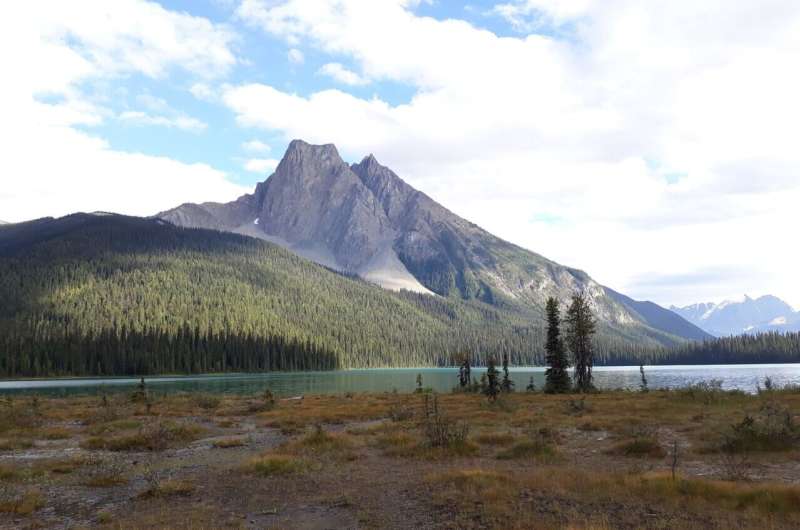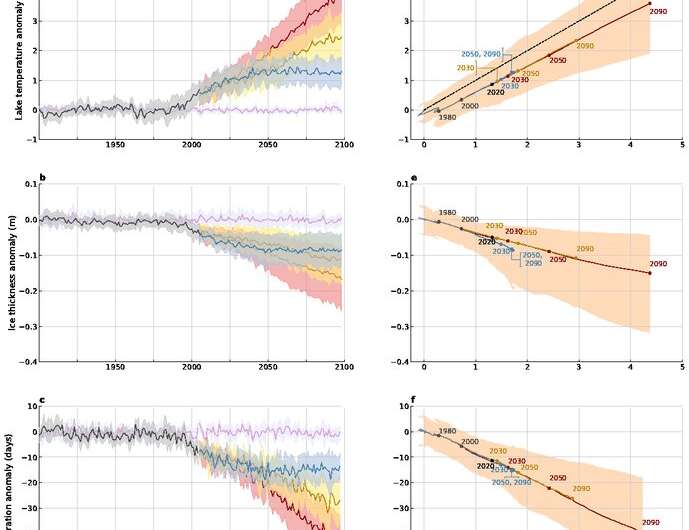Lakes are changing worldwide

Worldwide, lake temperatures are rising and seasonal ice cover is becoming shorter and thinner. This affects lake ecosystems, drinking water supply and fishing. An international research team led by Luke Grant, Inne Vanderkelen and Prof Wim Thiery of Vrije Universiteit Brussel has shown for the first time that these global changes in lake temperature and ice cover are not due to natural climate variability. They can only be explained by massive greenhouse gas emissions since the Industrial Revolution. To prove this, the team has developed multiple computer simulations with models of lakes on a global scale, on which they ran a series of climate models. The researchers found clear similarities between the observed changes in lakes and model simulations of lakes in a climate influenced by greenhouse gas emissions. Besides measuring the historical impact of climate change, the team also analyzed various future climate scenarios.
"These physical properties are fundamental to lake ecosystems," says Grant, a researcher at VUB and lead author of the study. "As impacts continue to increase in the future, we risk severely damaging lake ecosystems, including water quality and populations of native fish species. This would be disastrous for the many ways in which local communities depend on lakes, ranging from drinking water supply to fishing."
The team also predicted future developments under different warming scenarios. In a low-emission scenario, the average warming of lakes in the future is estimated to stabilize at +1.5°C above pre-industrial levels and the duration of ice cover to be 14 days shorter. In a high-emission world, these changes could lead to an increase of +4.0 °C and 46 fewer days of ice.

"This is very convincing evidence that climate change caused by humans has already impacted lakes," says Grant. Projections of lake temperatures and ice cover loss unanimously indicate increasing trends for the future. For every 1°C increase in global air temperature, lakes are estimated to warm by 0.9°C and lose 9.7 days of ice cover. In addition, the analysis revealed significant differences in the impact on lakes at the end of the century, depending on the measures taken by humans to combat climate change.
"Our results underline the great importance of the Paris Agreement to protect the health of lakes around the world," says Wim Thiery, VUB climate expert and senior author of the study. "If we manage to drastically reduce our emissions in the coming decades, we can still avoid the worst consequences for lakes worldwide."
The paper "Attribution of global lake systems change to anthropogenic forcing' has been published in Nature Geoscience on Monday October 18.
More information: Luke Grant, Attribution of global lake systems change to anthropogenic forcing, Nature Geoscience (2021). .
Journal information: Nature Geoscience
Provided by Vrije Universiteit Brussel



















